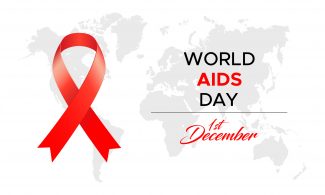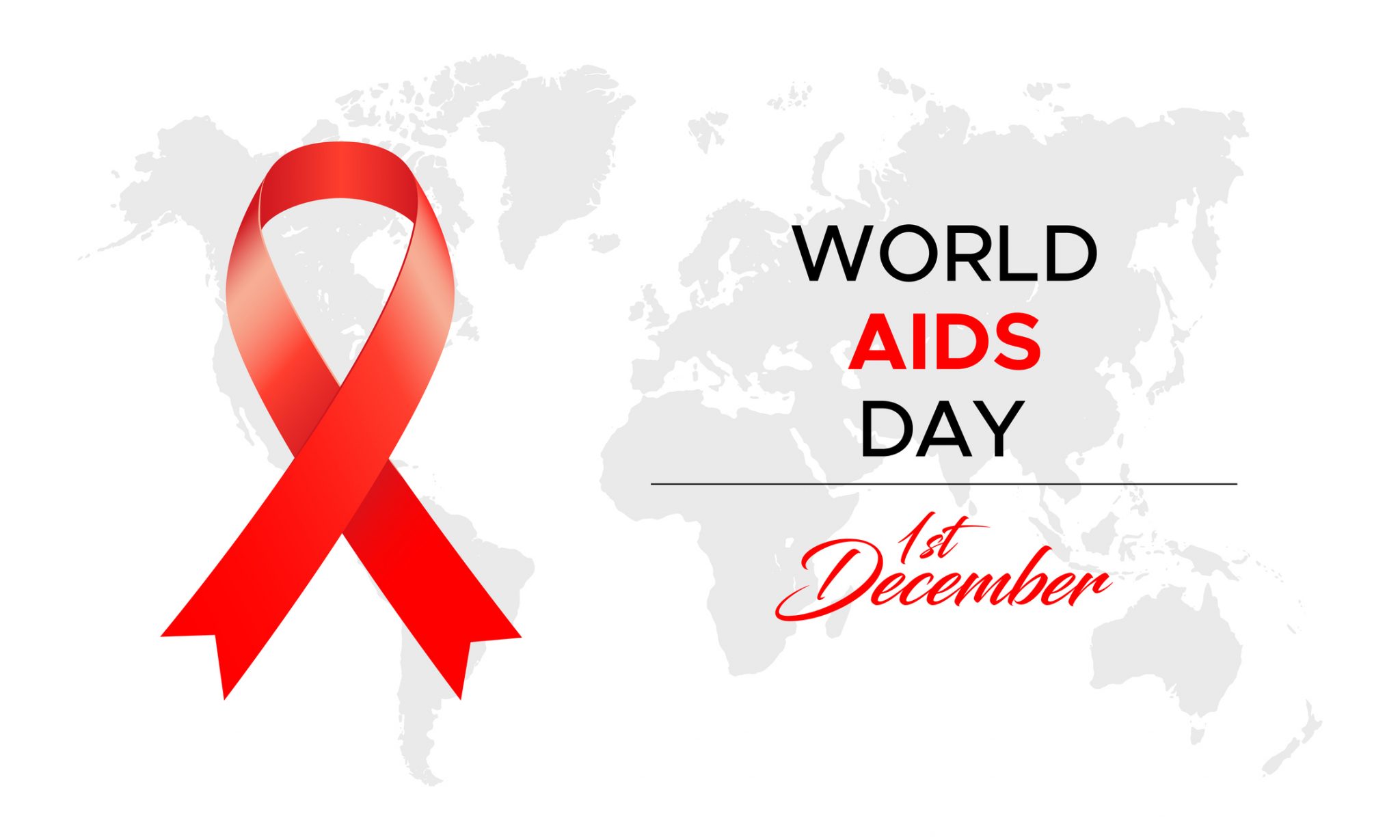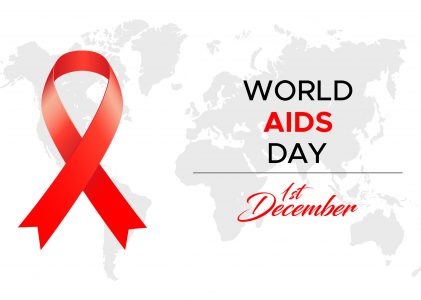
December 1st is recognized as World AIDS Day, founded in 1988 it was the first global health day to be recognized. World AIDS Day gives people around the world an opportunity to recognize those who have died from an AIDS-related illness, to support those currently living with HIV, and to unite as a global front in the fight against the HIV/AIDS epidemic. Every year, people and businesses around the world raise awareness to HIV and AIDS, calling for a greater response to ending the HIV epidemic.
According to UNAIDS, there is estimated to be 38 million people living globally with HIV as of 2019, with more than 32.7 million people having already died from HIV or AIDS. Despite being identified as recently as 1984, the HIV/AIDS pandemic is one of the most destructive viruses in history. It is important to raise awareness every year with World AIDS Day to remind the world leaders and the public that there is still a critical need to improve education, raise money and fight the prejudice and stigma of HIV.
While there is no cure for HIV/AIDS, scientific advances have made significant improvements in treatment. Laws are in place to protect people living with HIV and we have a greater understanding of the condition.
HIV in America
HIV remains a significant public health issue in America, with more than 1 million Americans living with HIV and causing more than 700,000 deaths since 1981. More than $20 billion is spent every year by the US government for direct health expenses related to HIV care and prevention. While new diagnoses have declined since their peak, 40,000 Americans are still newly diagnosed every year.
A resurgence of HIV is a real threat due to several factors such as a lack of access to HIV testing, prevention and treatment, increase trends in injection drug use, HIV related stigma and a lack of awareness of the real public health threat of HIV/AIDS.
Ending the HIV Epidemic: A Plan for America (EHE)
Ending the HIV Epidemic, EHE, is a bold operational plan developed by several agencies across the US Department of Health and Human Services to pursue the goal of ending the HIV epidemic in the U.S. by 2030. Learn more about the plan for America and find resources for HIV prevention, testing and living with HIV at HIV.gov.
December 6th through the 12th is National Influenza Vaccination Week
December 6th through the 12th is a week dedicated every year to raising awareness to the importance of getting your flu vaccine. It is likely that both the flu virus and the virus that causes COVID-19 will continue to spread during the winter. The best way to protect yourself against getting the seasonal flu is to get the influenza vaccine every year.
Getting vaccinated this year is more important than ever to help reduce the strain on the overloaded health care systems due to the COVID-19 pandemic. For people at a high risk of developing serious complications from the flu, it is especially important to get vaccinated. People at a high risk of serious flu complications include:
- Adults 65 and over
- Children under 5
- People with extreme obesity
- Pregnant women or new mothers
- People with a weakened immune system or HIV
- People with long-term health conditions such as heart disease, asthma and diabetes
If you are in a high-risk category for developing complications from the seasonal flu, it is important to get vaccinated. Learn more about the flu vaccine and how to protect yourself at the Office of Disease Prevention and Health Promotion.
FDA Issues Emergency Use Authorization for COVID-19 Vaccine
On December 11, 2020, the US Food and Drug Administration, FDA, issued the first emergency use authorization, EUA, for the Pfizer vaccine to prevent the coronavirus disease, COVID-19. This authorization by the FDA is a huge milestone in the fight against this devastating pandemic, following a transparent and open review process with input from public health and independent scientific experts. The agency’s career scientists conducted a thorough evaluation to ensure that the vaccine meets FDA’s rigorous scientific standards for safety, effectiveness, and manufacturing quality to support the emergency use authorization.
The vaccine started rolling out this week across the United States with healthcare workers in high-risk settings first in line, along with staff and residents of nursing homes and first responders. While those vaccinated are protected against getting seriously ill or being hospitalized due to COVID-19, they could still carry the virus can be contagious to others. People who have received the vaccine should still practice social distancing and wear masks.
Greater Waterbury Imaging Center applauds our heroes on the frontline, scientists and legislators working tirelessly in the fight against COVID-19. We urge you to get the flu vaccine to protect yourself and lessen the strain on our nation’s hospitals. The COVID-19 vaccine could be considered one of the best gifts to ourselves this Holiday season. Contact us for all your MR Imaging needs.
From all of us at GWIC, we wish you and yours a safe and happy Holiday season.


